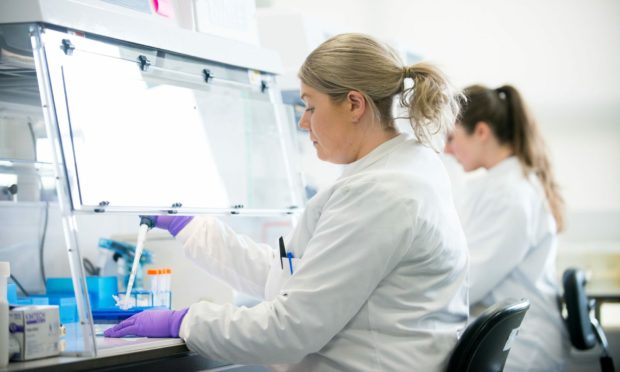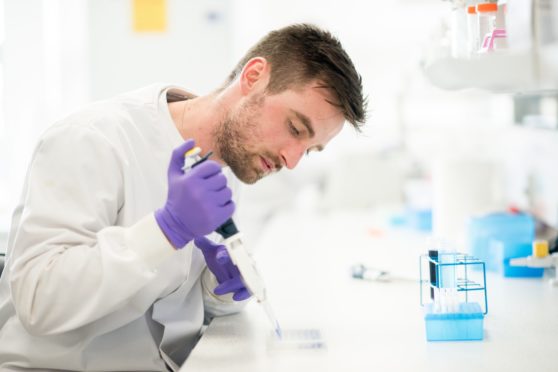Aberdeen researchers have hailed the action of a unique micro-organism derived from the human gut as having the potential to “revolutionise” the treatment of cancers.
4D Pharma, a biotechnology company whose research capability is largely based on the Foresterhill campus at Aberdeen Royal Infirmary, highlighted early findings around a “live biotherapeutic” it has identified and its effects on the reduction of cancerous tumors. The results of the research have been published in a research journal, Nature Communications.
Why live biotherapeutics?
Live biotherapeutics are so called because they are based on the use of live micro-organisms.
4D Pharma’s latest update focuses on a bacteria, Megasphaera massiliensis MRx1299, the company has identified using its drug discovery platform, which it calls MicroRX.
The recently published paper focused on preclinical, or early stage, studies which found the bacteria strain “enhanced” the anti-tumor activity of therapies that use the body’s own immune response to attack cancer.
The study found use of the M. massiliensis bacteria with cytotoxic T lymphocytes – a type of cancer-fighting white blood cell – as well as an increasingly important immunotherapy, known as chimeric antigen receptor T-cell – or CAR-T – treatment, resulted in “better tumor clearance”.
Fighting cancer with immunotherapies
Dr Imke Mulder, the Aberdeen-based research director at 4D Pharma, said the findings backed up other research the company has undertaken which has shown “the important role our live biotherapeutics have to play in the fight against cancer in combination with immunotherapies”.
In a statement to the London Stock Exchange, she added: “This demonstrates not only the importance of live biotherapeutics as a new modality poised to revolutionize the treatment of a wide range of cancers, but also the power of our MicroRx platform to continue making significant discoveries and advances in this field.”
The research was conducted in collaboration with two other university research programmes in Germany, at the Philipps-University Marburg and Universitätsklinikum Würzburg.
Dr Alexander Visekruna, of the Institute for Medical Microbiology and Hospital Hygiene at Philipps-University Marburg, said M. massiliensis was a commensal bacteria – which acts n the immune system to induce protective responses against pathogens – and that it “may be used as specific microbial biotherapeutics to enhance anti-tumor immunity and increase the efficacy of CAR-T therapy for treating tumors”.
Other uses of live biotherapeutics
The company also has number of candidates using live biotherapeutics in various trial stages in the pipeline, including treatments for asthma, irritable bowel syndrome (IBS) and pancreatic cancer.
4D Pharma, whose head office is based in Leeds, is also a pioneer in expanding its funding opportunities in the US through use of a “spac”.
Spac and Nasdaq
The company was an early UK adopter of a recent investment trend which involves merging with a “special purpose acquisition company” (spac) in the US. 4D Pharma achieved a listing on the technology-friendly Nasdad stock exchange in New York in March when it merged with the listed spac, Longevity Acquisition Corporation. The company raised around $24million (£17.4m) from US and UK investors.
The company’s shares listed on the London Stock Exchange’s Alternative Investment Market (AIM) closed 3.65% lower to 100.2p. However, its shares on Nasdq were up 3.8% in early trading to $1.37.
4D Pharma initially grew out of GT Biologics, a spin-out of Aberdeen University’s Rowett Institute of Nutrition and Health.
Aquarius Equity Partners took an initial stake in GT Biologics in 2012, after which its name was changed to 4D Pharma and its headquarters established in Leeds. The company was made its IPO on AIM in 2014.

